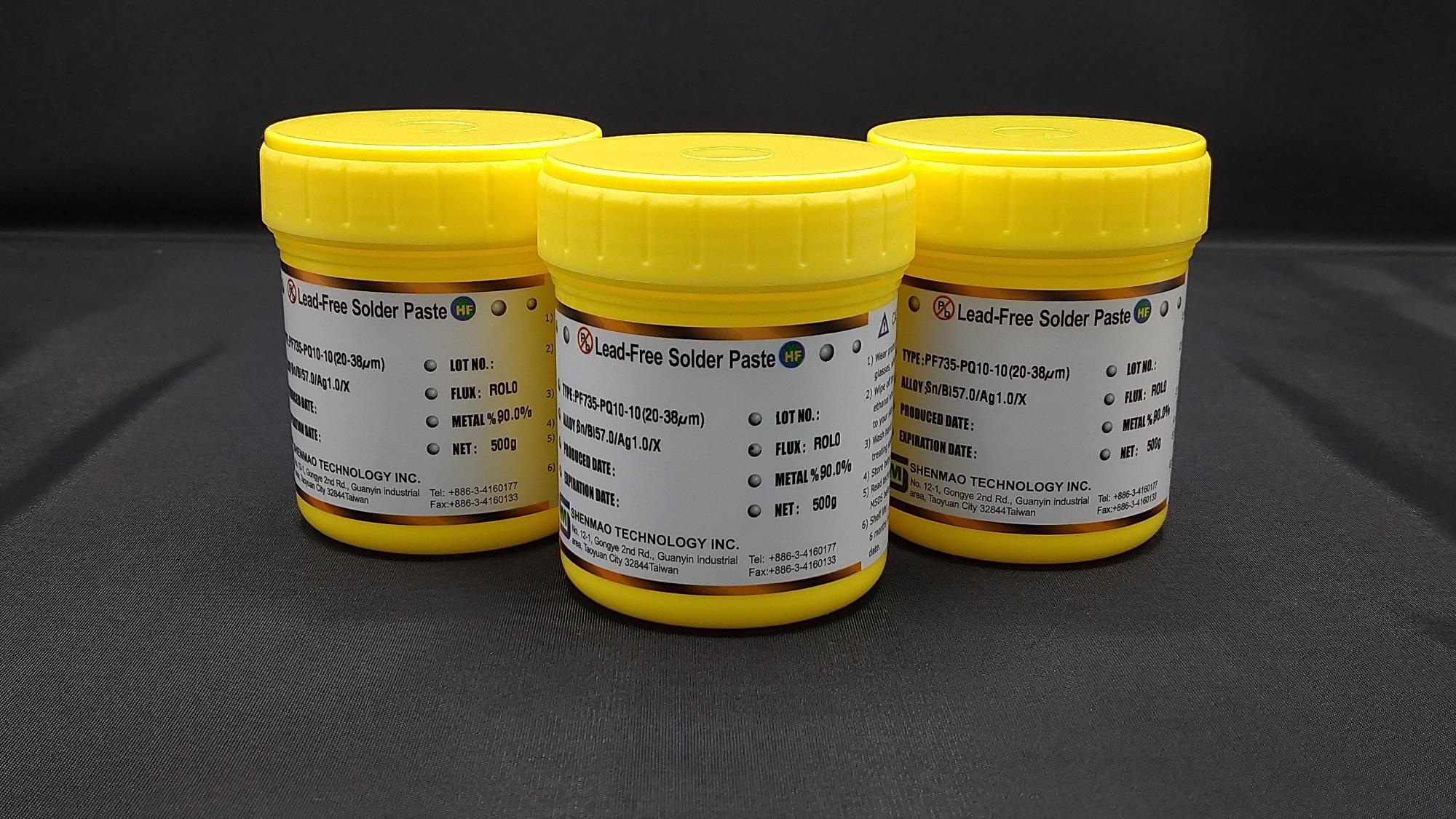SHENMAO America, Inc. is pleased to introduce its PF735-PQ10-10 Low Melting Point Lead-Free Solder Paste. Low-temperature solder paste has become more widely used in the assembly of surface mount technology devices because certain assemblies cannot withstand the same temperatures that are used for lead-free soldering, typically 240°-250 °C. These high temperatures can damage sensitive components, causing warpage and other damage.

Image Credit: SHENMAO America, Inc.
PF735-PQ10-10 can reduce the reflow temperature to below 190 °C, thus decreasing PCB and substrate deformation. Additionally, the solder paste saves energy, reduces thermal stability requirements of PCBs and components, and increases yield rates. This makes it ideal for SMT devices with sensitive components.
SHENMAO’s PQ10 series of low-temperature solder paste offers some important benefits when it comes to SMT assembly. When compared with SnAgCu, the PQ10 series of low-temperature solder paste offers reduced peak reflow temperature, energy consumption, and warpage of PCBs and components. In comparison with the Sn42/Bi58 Eutectic alloy, the PQ10 series offers better ductility, finer microstructure, and increased drop and thermal reliability.
PF735-PQ10-10 is Halogen-free (ROL0) with no halogen intentionally added. It complies with RoHS, RoHS 2.0 and REACH.